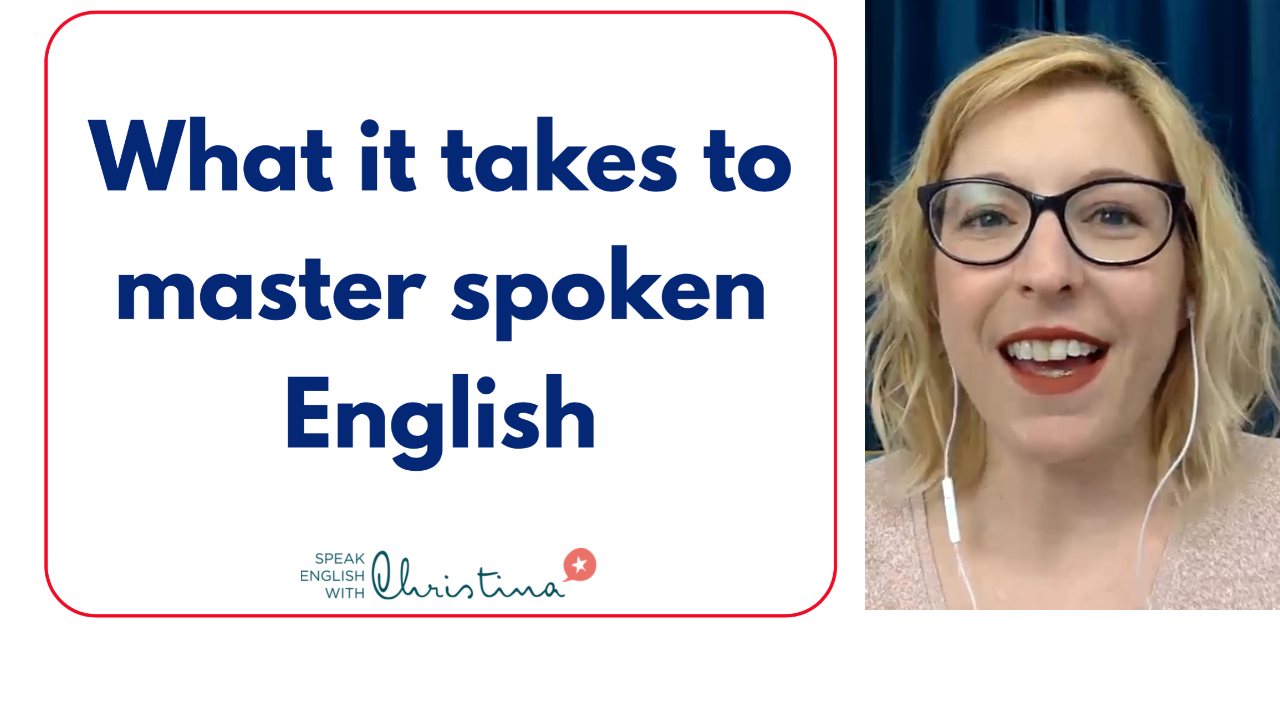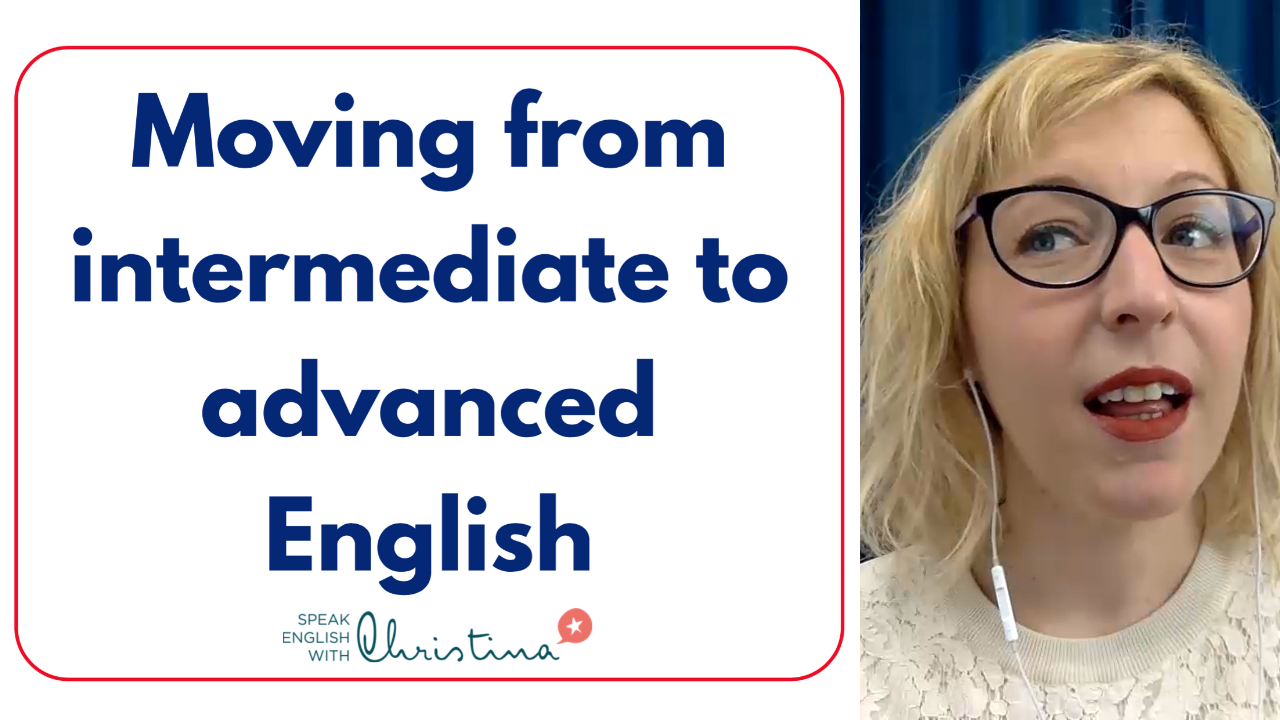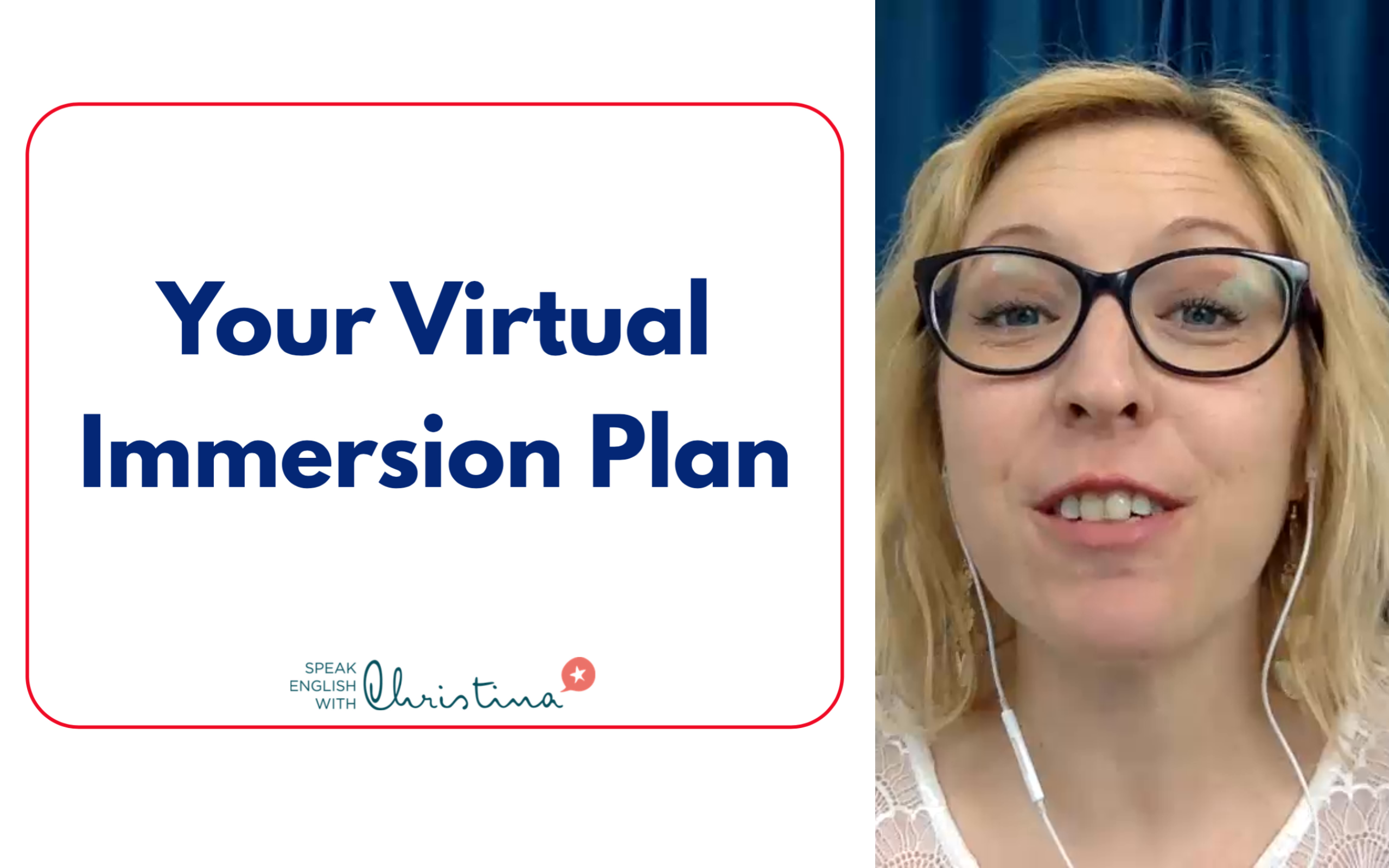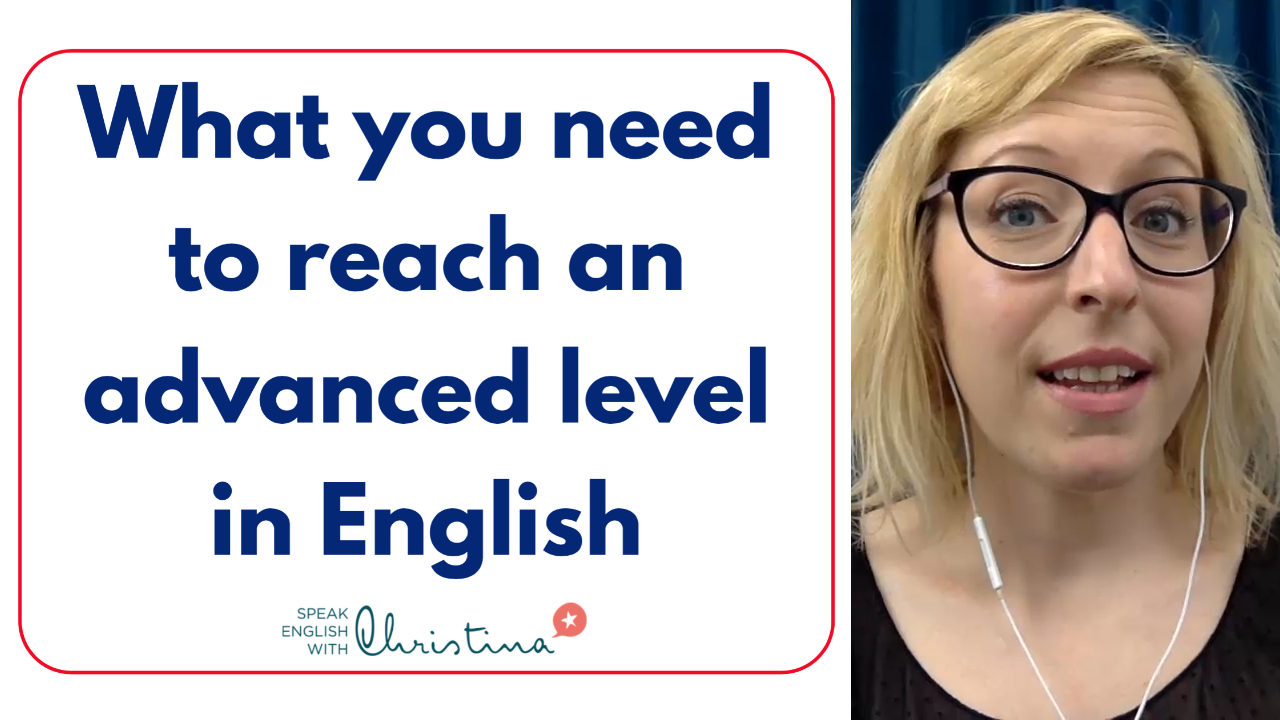
As you may know, last weekend I attended a conference about teaching languages online. There were around 60 awesome teachers and many of them spoke 5 or more languages!
Their energy gave me the inspiration to create something special for you: A free mini-course about how to master spoken English.
And it starts today!
So often, students feel like their level of English doesn’t reflect the years they have spent learning English.
After 10 years (or more) something is still missing…
You’re doing your 3rd language course with your company, you still have issues with confidence and smooth speaking.
You think that your English is inadequate when talking to your boss, who has a good level of English.
Whenever you try to speak in English, like in meetings with American colleagues, you get blocked and can’t express your thoughts fluently.
Is this familiar?
It is for so many students!
So I wanted to do a mini-course to help you overcome these problems and learn how to master spoken English.
In our first lesson today, we’ll cover:
- The importance of having the right mindset when advancing in English
- 3 struggles that are blocking you from reaching advanced fluency
- Why it’s normal that you feel like you advance at a snail’s pace
- 5 concrete changes that you can make today to sound more advanced immediately

Be sure to have a pen and some post-its, so you can note those 5 concrete changes!
Now tell me:
What is the biggest challenge that is stopping you from mastering spoken English right now?
Then, on Monday, I’ll send you Part 2 of the course, on how to build a concrete, practical plan to master spoken English.
This is going to be a great journey together!
See you then,
Christina

More good stuff...
Click the image to learn more








First of all the diversity and 2ndly the idea to express new things. Sometimes i start expressing things in a sentence but in middle of or in the end od sentence have no idea how to conclude.
Hi Salman, Oh, that happens to me sometimes even in English (my native language). I think it happens to everyone from time to time, no matter if they’re speaking their 1st, 2nd, 3rd, or more language. Often, when we do things like this in a foreign language, we tend to think it’s because of our level, but in fact, it can happen in your native language too! The important thing is to be able to recover. A simple phrase like “Oh, I forgot where I was going with that idea…” is very useful to admit that you forgot what you wanted to express!
Hi, Christina. Thank you for this opportunity.
My biggest challenge is speaking! Almost nothing… 🙂
Hi Monica,
Thanks for sharing! When you say “almost nothing”, do you mean that you feel like you can say almost nothing, or you have almost no opportunities to practice?
Amazing job you are doing
Thank you so much Ayesha!
Hey Christina,
Many Thanks for the free mini-course, part-1.
According to your question: What is the biggest challenge that is stopping you from mastering spoken English right now?
My answer to it: Having with whom practice and learn at the same time, in an efficient context where I can feel and know my progress…
Hi Juan Carlos,
Thanks for sharing that! I’m sure that you are not alone! Many students have this same exact problem… How can I find someone who will help me practice, but also help me learn. This is the difference between just conversation practice, and actually working with a teacher, but both contribute to a “balanced diet” of language learning. We’ll talk about it soon 😉
Hello Christine, Thank you for your wonderful lesson, I keep studying English erratically as you say and I progress, but I’m, sure I could do better with a guide.
Mi bigger problems come out from grammar structures that I don’t know, not necessary idioms but the way is saying it. Another big problem is prepositions, finally, some word can have many different subtle meanings and you don’t know where to use them.
I hope having be useful
Hi Jaime, good to “see” you again! And I’m happy to hear that you’re progressing. It’s a bit like sport… It’s good to do any sports, even if it’s a mix of different random activities. This is better than doing nothing. But if you want to progress faster, the guidance of a coach is indispensable! They can tell you exactly what to do next based on your performance and progress, so you progress faster and better.
It’s good that you can already identify your weaknesses: certain grammar structures that you don’t know, idioms, and prepositions. With this knowledge, a teacher could find the right exercises and resources to target these specific problems, and help you solve them! And then you would be more advanced on those aspects of English!
thank you Christina for this lesson 1, I don’t have time ….. but now I have enough time to take part to the fluency club and I love it !!
Mélanie
Hi Mélanie, I’m happy to hear that you love the Fluency Club! And you’re right, sometimes you have to make small changes in your schedule over time, not try to change a lot of things suddenly. Smaller, progressive changes are more sustainable and will help you create a durable method and lifestyle for learning! You’ve already started that path by making time in your calendar for the Fluency Club! Good for you!! 🙂
Dear Christina,
Thank u very much for your last video, that was very useful and I had been searched it for so long – you are absolutely right that the sentence can be grammatically correct but not to sound naturally. But this is exactly question – how to learn these natural moments. This absolutely makes me feel frustrated bcz I can’t fell this thick line, this border where is I’m a master and am I already ? What kind of measure of all grammar rules and new words after learning which one can consider oneself as a master…
Hi Tatyana, You’re very welcome, and I’m glad to hear that it really helped you! And I agree, it is frustrating because you don’t always know how to move from “correct, but schoolbook English” to “natural, advanced English.” But don’t worry, I’ll talk about how to do this in the next lesson in the course! And I don’t think that being a master is about knowing all the grammar rules (most native speakers don’t know the rules, they just use them). It’s more about being able to communicate clearly, but also about being able to create connections through your language, to show others “I’m one of you!” More about that in the next lesson on Tuesday!
Hi Christina.
my case is like a lot of people. I’m able to listen and understand almost 100% I mean, the general idea is understandable but when I try to speak it’s a little complicated. I don’t have enough practice to face to speak and I thing this is the reason. If you have some advise to get better thanks.
Tony
For me i think i have accessed great level but still i am struggling to make a good sentences or to use english easy way i do not know what is the problem some times i feel lack of vocabulary and shying.
If you have an idea you can share with me
And i hope i will be your student. Thanks
I have read and understood mainly a bunch of written English for about 35 years. So my speaking English is badly unnatural because of may be formal smell. So I really want to improve natural spoken English expression and understand the spoken English sound so well and instantly. What course should I choose in your program?
Hi Ligin, thanks for your message, and I’m glad that you realize that now is the time to take action and improve your English! And I’ll be happy to help you! As for your question about which course, it depends on what you’re looking for. Let me give you some information:
Master Real American English: This program is for you if you want to improve your fluency + conversation skills, AND eliminate your mistakes so you can speak more correctly more quickly AND communicate more effectively in business situations. It’s a 3-month live program.
Understand Real American English: This one is for you if want to better understand native speakers who speak fast, and become familiar with colloquial and natural expressions of real spoken English. It’s an online course, and you have lifetime access after you buy it.
Faster Fluency Conversation Club: If you want especially to develop your speaking skills and vocabulary, and to better understand many different accents. This is a conversation club with live speaking practice, and help from teachers.
Let me know if you have any questions about choosing the best program, and I’ll be happy to help!